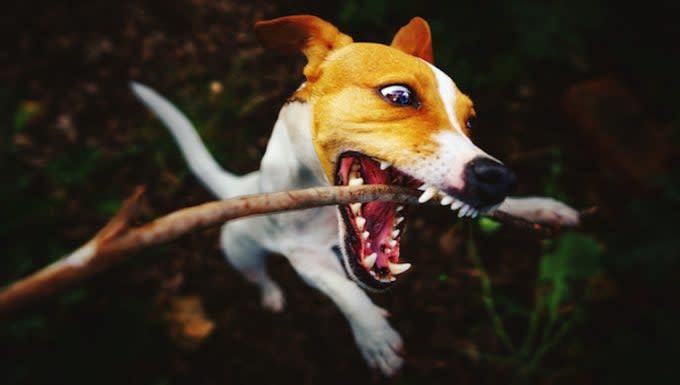Lockjaw in Dogs: Symptoms, Causes, & Treatments

(Learn more about lockjaw in dogs. Picture credit: Johanna Miettinen / EyeEm / Getty Images)
Lockjaw in dogs happens when a dog cannot open or close their mouth. The condition is often caused by tetanus, which you can read about here.
However, the condition can also be caused by other factors including traumas and birth defects.
If you see the signs of the condition in your dog, then get to a veterinarian for a proper diagnosis and treatment.
Here’s what you should know about the symptoms, causes, and treatments for the condition.
Symptoms of Lockjaw in Dogs
The condition produces a number of symptoms. For instance, some of the most common symptoms include:
Pain
Swelling
Ear infection
Loss of appetite
Non-typical facial expressions
Drooling
Fever
Dehydration
Causes of Lockjaw in Dogs

(Picture credit: Zoonar RF / Getty Images)
The cause of the condition is often tetanus. Although other factors can also cause the condition. For example, some of the most common causes include:
Trauma
Object stuck in the mouth
Nerve problems
Birth defects
Inflammatory issues
Neoplasia
Ear issues
Muscle diseases
Additionally, larger dog breeds seem to develop the condition more than smaller dogs. For example, some of those breeds include:
Labrador Retriever
Golden Shepherd
King Charles Spaniel
Golden Retriever
Weimaraner
Treatments for Lockjaw in Dogs
Firstly, your vet will ask about your dog’s symptoms. Secondly, your vet will examine your dog’s mouth. Specifically, your vet will look for any objects (like sticks) that might be stuck in your dog’s mouth.
Thirdly, a full physical examination will be carried out. Blood and urine tests will be taken. Additionally, X-rays can be used to examine your dog’s jaw area.
Ultimately, treatment will target the underlying condition. For example, some cases will require a surgery. However, other cases can benefit from anti-inflammatory medication.
As always, if your vet prescribes your dog any medicine, make sure to stick to the correct dose and frequency instructions. Also, complete the full course of medicine.
Generally, treatment will also include physical therapy. This is to help your dog get used to opening and closing their mouth again.
Have you ever cared for a dog who suffered from this condition? How did your vet help your dog recover? Let us know in the comments section below.
The post Lockjaw in Dogs: Symptoms, Causes, & Treatments appeared first on DogTime.

